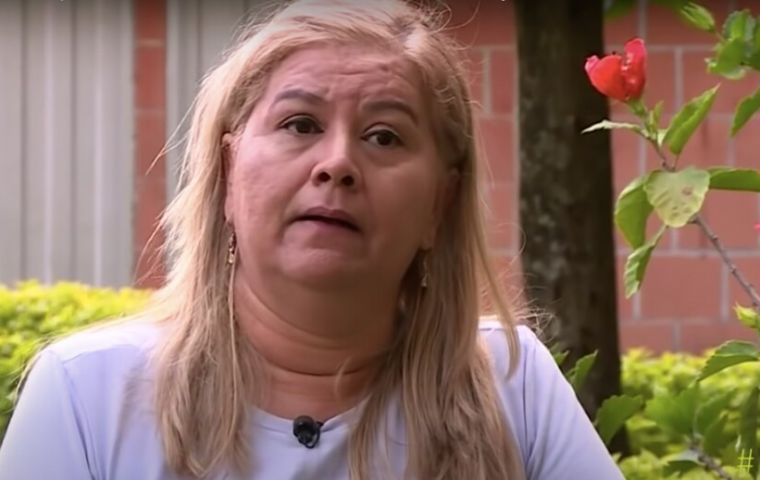MercoPress. South Atlantic News Agency
No euthanasia for Colombian woman suffering from ALS
 Martha was happy she was going to die
Martha was happy she was going to die Colombian health authorities had second thoughts Saturday about administering a euthanasia procedure to a 51-year-old woman suffering from amyotrophic lateral sclerosis (ALS) and ordered its cancellation because the required criteria had not been met.
“My mother is happy,” Martha's son Federico had posted on social media together with pictures of the ailing woman who was confident her suffering would end.
But the Colombian Institute of Pain (Incodol) decided otherwise: “According to a meeting in which the request of Mrs Martha Liria Sepúlveda was reviewed and analyzed again sufficiently and amply, it concluded unanimously to cancel the procedure to die with dignity through euthanasia, scheduled for October 10, 2021.″
The decision was based on numeral 26.6 of article 26 of Resolution 971 of 2021 of the Ministry of Health, which assigns the Committee within its functions to review the application process and the complete euthanasia procedure, to detect any situation that affects its development.
“That is why, by having an updated concept of the patient's health and evolution, it is defined that the termination criterion is not met, as had been considered in the first committee,” explains Incodol.
In July 2020, the country's Constitutional Court had extended the right to a dignified death to non-terminal patients who go through “intense physical or mental suffering” due to an incurable injury or illness.
”I am calmer since I received authorization for euthanasia, I laugh more and sleep better (...) I am a lucky woman,“ Sepúlveda had told the media before her procedure was put off.
Martha had already been warned that if she died by her own will she would not be eligible for Catholic rituals, despite having been a pious woman all her life. She had been at peace with that thought and spent what were to be her last moments with her family and making her final arrangements.
“I am calm. I am a Catholic person, I consider myself very much a believer in God, but, I repeat, God does not want to see me suffer and I believe that no one, no father wants to see his child suffer,” she said.
Martha's mother is still alive and it has been difficult for her to understand that her daughter decided to die, it was reported. But her 22-year-old son, Federico Redondo, has come to terms with the idea that it will be hard to live without the woman who gave him life, but it would be much harder to see her suffer.
“I saw it as the greatest act of love that I have ever done in my life,” Federico said. “I need my mother, I want her with me, almost in any condition, but I know that in her words she no longer lives, she survives. Now I am focused on making her happy, on making her laugh...”.
Martha's wish was to die Sunday morning.
Colombia has practised euthanasia in 1997 but only signed it into law in 2015, amid criticism from different religious movements. Martha's case drew attention because she is not going through a terminal phase.
Astrophysicist Stephen Hawking, whose ALS was diagnosed in 1963, had the disease for 55 years, the longest recorded time. He died at the age of 76 in 2018.




Top Comments
Disclaimer & comment rulesCommenting for this story is now closed.
If you have a Facebook account, become a fan and comment on our Facebook Page!